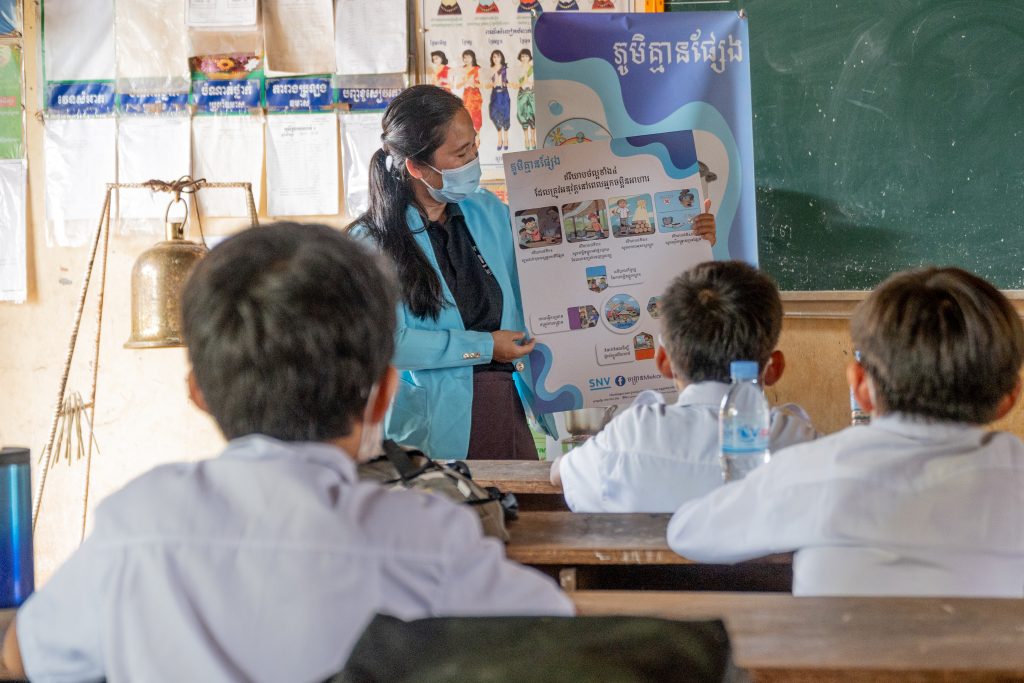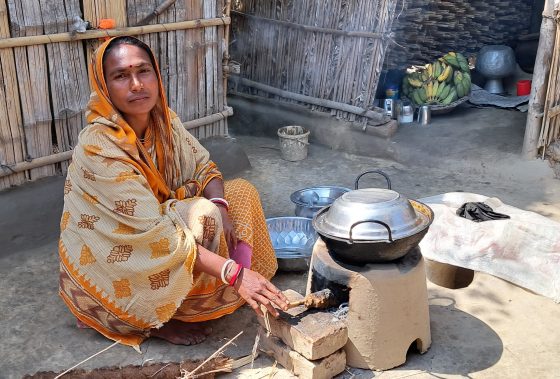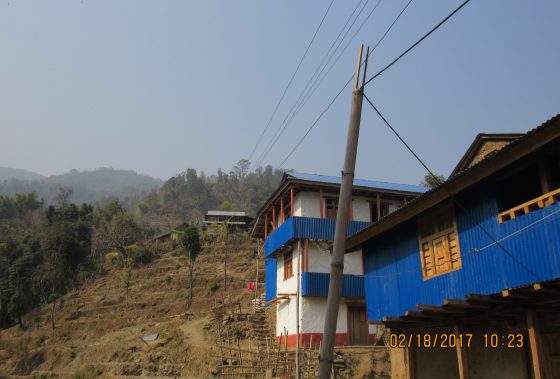
Cambodia
Since 2015, EnDev works on a programme to address the negative social, economic, environmental, and health impacts of traditional cooking in rural Cambodia. By mid-2020, it shifted its strategy from a supply development approach and Results-Based Financing (RBF) to awareness creation and capacity building of local institutes to provide Behaviour Change Communication for clean cooking.
This is taking place under the so-called Smoke-Free Village (SFV) approach. This strategy aligns with the National Strategic Development Plan, the Cambodia Basic Energy Plan and Health Plans to prevent non-communicable diseases and has been built on the approach for Community Led Total Sanitation.
Technologies used in this project
- Alternative-fuel cooking
- Improved cookstoves
Country data
- People with access to clean cooking: 30,541*
- *Achievements until December 2024. Formerly, Cambodia, Laos and Vietnam were part of a multi-country approach. Since 07/2023, each country is presented separately with a separate budget and individual indicative targets.
Approach
Since 2016, EnDev has been supporting the market for higher-tier cooking in Cambodia. A lack of awareness among households proved to be a significant barrier to change towards clean cooking. Inspired by ‘Community Led Total Sanitation”, Smoke Free Village redesigned behaviour change methods for clean cooking to drive the transition. Smoke Free Village takes a systemic approach by building governance capacity from local to national levels and stimulating market development through demand activation. Key partners are the Ministry of Mines and Energy and subnational clean energy working groups, which oversee and
coordinate activities at the village level. Smoke Free Village is people-centred and responsive to data analysis. Data collected through logbooks, surveys, energy audits and cooking energy tests are analysed, linked and compared.

Impact
Smoke Free Village has achieved a 28% reduction in daily firewood consumption, which is 68,000 kg per day less than 2023. Such a reduction in firewood has tangible environmental, gender and health benefits. By 2024, 10,000 households had switched to using only clean cooking fuels. 131 villages have been declared smoke-free, with at least
85% of households using primarily clean energy for cooking. An entire district with 20,000 households became smoke-free.
A National Clean Cooking Energy Strategy was finalised and accepted with high appreciation by the Ministry of Mines and Energy. Based on this document, the World Bank is preparing a substantial Clean Cooking Fund.
EnDev’s implementer, SNV, signed an MoU with the health non-governmental organisation CHAI to work together to mainstream cooking energy in the health sector. Together with Berkeley Air and CHAI, health research projects have been developed and submitted to various donors. Evidence from this research will help convince the Ministry of Health to include cooking.
Strengthening the Entrepreneurial Ecosystem for Clean Cooking (SEE-CC)
In close partnership with EnDev, the SEE-CC programme introduces a new private-sector approach to promote clean and affordable cooking in Bangladesh, Burkina Faso, Cambodia, Ethiopia, Kenya, Mali, Niger and Uganda.
Strengthening the Entrepreneurial Ecosystem for Clean Cooking (SEE-CC)

